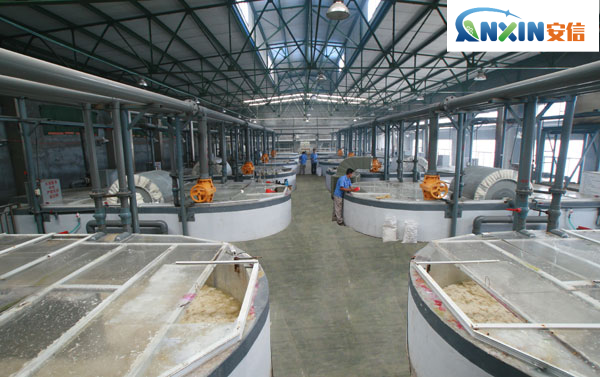Hydroxyethylmethylcellulose improves water retention
Hydroxyethylmethylcellulose (HEMC) is a versatile polymer known for its ability to improve water retention in various applications. Whether it’s in construction, pharmaceuticals, cosmetics, or even food products, HEMC plays a crucial role in enhancing the performance of numerous formulations.
Properties of Hydroxyethylmethylcellulose:
HEMC is a derivative of cellulose, a natural polymer found in plants. Through chemical modification, hydroxyethyl and methyl groups are introduced onto the cellulose backbone, resulting in a compound with unique properties.
One of the most significant characteristics of HEMC is its water retention ability. Due to its hydrophilic nature, HEMC can absorb and retain large amounts of water, forming viscous solutions or gels. This property makes it invaluable in applications where moisture management is essential.
Moreover, HEMC exhibits pseudoplastic behavior, meaning its viscosity decreases under shear stress. This makes it easier to handle during processing while ensuring it maintains the desired consistency in the final product.
Applications of Hydroxyethylmethylcellulose:
Construction Industry:
In construction, HEMC is widely used as a thickening agent and water retention additive in cement-based mortars, plasters, and tile adhesives. By incorporating HEMC into these formulations, contractors can improve workability, reduce sagging, and enhance adhesion to substrates. Additionally, HEMC helps prevent premature drying of cementitious materials, allowing for proper hydration and curing.
Pharmaceuticals:
Pharmaceutical companies utilize HEMC in various drug formulations, particularly in oral dosage forms such as tablets and suspensions. As a binder, HEMC helps hold the active pharmaceutical ingredients together, ensuring uniform distribution and controlled release. Additionally, its thickening properties aid in creating suspensions with consistent viscosity, improving palatability and ease of administration.
Cosmetics:
In the cosmetics industry, HEMC finds application in a wide range of products, including creams, lotions, shampoos, and hair styling gels. Its ability to enhance water retention contributes to the moisturizing effects of skincare products, keeping the skin hydrated and supple. In hair care formulations, HEMC helps create smooth textures and provides long-lasting hold without stiffness or flaking.
Food Industry:
HEMC is approved for use as a food additive and is commonly found in processed foods such as sauces, dressings, and dairy products. In these applications, HEMC functions as a thickener, stabilizer, and emulsifier, improving texture, mouthfeel, and shelf life. Its water retention properties help prevent syneresis and maintain product consistency, even under varying storage conditions.
Benefits of Hydroxyethylmethylcellulose:
Improved Product Performance:
By incorporating HEMC into formulations, manufacturers can achieve desired rheological properties, such as viscosity and flow behavior, leading to enhanced product performance. Whether it’s a construction mortar that spreads smoothly or a skincare cream that moisturizes effectively, HEMC contributes to the overall quality and usability of the end product.
Enhanced Stability and Shelf Life:
The water retention properties of HEMC play a crucial role in maintaining the stability and shelf life of various formulations. In pharmaceuticals, it helps prevent moisture-sensitive ingredients from degrading, ensuring potency and efficacy over time. Similarly, in food products, HEMC stabilizes emulsions and suspensions, preventing phase separation and maintaining product integrity.
Versatility and Compatibility:
HEMC is compatible with a wide range of other ingredients and additives, making it versatile in formulation design. Whether used alone or in combination with other polymers, surfactants, or active ingredients, HEMC adapts well to diverse processing conditions and application requirements. Its compatibility extends across different pH ranges and temperatures, further expanding its utility in various industries.
Environmentally Friendly:
As a derivative of cellulose, HEMC is derived from renewable plant sources, making it environmentally friendly compared to synthetic polymers derived from petrochemicals. Additionally, HEMC is biodegradable, posing minimal environmental impact when disposed of properly. This aligns with the growing demand for sustainable and eco-friendly materials in modern manufacturing practices.
Hydroxyethylmethylcellulose (HEMC) is a multifunctional polymer with widespread applications across industries. Its unique combination of water retention, thickening, and rheological properties makes it indispensable in formulations ranging from construction materials to pharmaceuticals, cosmetics,and food products. By harnessing the benefits of HEMC, manufacturers can achieve improved product performance, stability, and sustainability, meeting the evolving needs of consumers and industries alike.
Post time: Apr-16-2024
